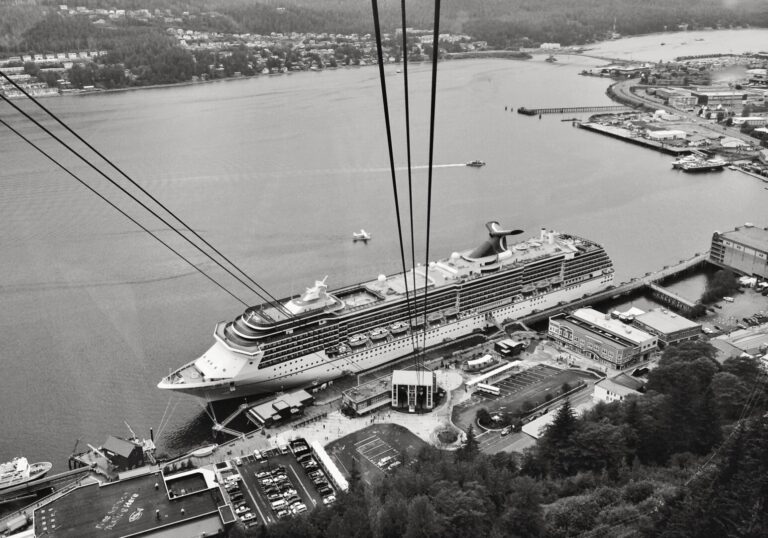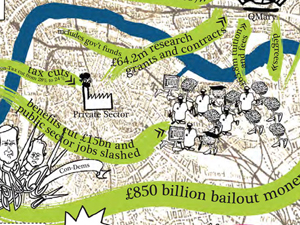In an era when urban space is theorized as an educative science enhancing productivity, business, and management, we witness the emergence of teaching as a dominant productive force for the first time in the history of capital. Given the decisive role of knowledge production in the development of globalized urbanization it becomes vital to identify critical pedagogies that not only engage the production of space but grasp the production of space as pedagogical. To do so, I attend to interventions into regionalist studies and the global city to argue for visual spatial tactics as a tool for a critical regionalist pedagogy capable of linking material, affective, and discursive practices with a placed-based approach to globalized urbanization. Students design a collaborative website documenting the spatial history of cruise ship tourism in Alaska as an argument over the right to the city. Identifying this living process—framing the cruise industry as a constitutive system fusing discourse, space, and identity to restructure history, nature, and region—becomes a means of questioning and revising otherwise generalized theories often brought to bear on tourist landscapes, on Alaska, and on critical pedagogy itself. This case study shows the emergence of the cruise ship city as inseparable from the onset of globalized urbanization and how it, in turn, provides edifying material to mobilize a critical regionalist pedagogy within contemporary forms of educative landscapes.
Keyword: countermap
Countermapping the University
Appropriating the genre of the campus map, graduate students at Queen Mary University London and University of North Carolina Chapel Hill have produced a countermap of the university. Elegant in design, yet multi-purposed, their mapping of alternative uses and critiques takes the form of a poster-sized doubled sided print which locates the university within its larger societal force field (the map’s front side), and stages an arena for playing that field by means of a board game (which appears on the reverse side). In sharp contrast to the political geography of curricula intended to assimilate students to an already settled matter and progress-toward-a-degree, an unproblematic temporal beat measured by accumulated credit-hours, the critical cartographical work of this collective reallocates the energies of their seminars and research to produce alternate forms of knowledge and means for its legitimation.

